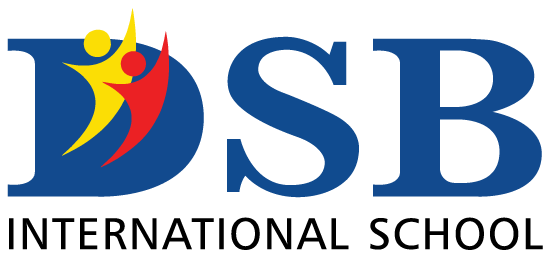At DSB International School our Foundation Stage Programme based on the curriculum, as set forth by the British Association for Early Childhood Education, recognises the importance of nurturing positive relationships and tailoring the environment to meet the needs and interests of each child.
Our curriculum of learning through play, emphasising the holistic development of the child, ensures that each gets the best start to their education and the support to reach their full potential. Children develop quickly in the early years, and a child’s experiences between birth and age five have a major impact on their life. A secure, safe and happy childhood is extremely important. Good parenting and exceptional quality learning during the early years, provide the strong foundation that a child needs to make the most of their abilities and talents as they grow.
Our Early Years Foundation Stage programme is offered in three stages:
- FS Sure Start Playgroup (FSSS for children aged 2-3 years)
- Foundation Stage 1 (FS 1) for children ages 3-4
- Foundation Stage 2 (FS 2) for children ages 4-5
The four guiding principles that shape practice in our early years classes are as follows:
- Every child is unique and is constantly learning to be resilient, capable, confident and self-assured
- Children learn to be strong and independent through positive relationships
- Children learn and develop well in enabling environments, which respond to their individual needs, and there is a strong partnership between practitioners and parents
- Children develop and learn in different ways and at different rates
If you would like to find out more about our Foundation Stage - please reach out to our Head of Admissions Anisha Agerwala Seth admissions@dsbindia.com or our FS co-ordinator Reema Ahuja reemaahuja@dsbindia.com
Teaching and learning takes place through a balance of play based, child initiated and adult led activities.
There are 3 Prime Areas that are essential to a child’s healthy development and future learning. These are:
- Communication and Language
- Physical Development
- Personal, Social and Emotional Development
In addition to these prime areas, children also develop skills in 4 Specific Areas:
- Literacy
- Mathematics
- Understanding The World
- Expressive Arts and Design
Personal, Social and Emotional – Our inclusive ethos provides opportunities for each child to become a valued member of the group and the community developing a strong self image and self esteem. Our positive attitude towards the child’s learning generates enthusiasm for knowledge and learning, creating confidence. By providing opportunities for children to learn how to co-operate and work harmoniously and to listen to each other, social skills are built.
Communication and Language - Through activities like storytelling, role play and puppet shows, children develop attention skills and persistence. Communication and language skills improve as all children talk and communicate in a wide range of situations. Children also practise and extend their range of vocabulary and communication skills by listening carefully.
Physical Development - We provide opportunities for all children to develop and practise their fine and gross motor skills and improve their understanding of how their bodies work and what they need to do to stay healthy and safe.
Literacy - Phonics, Reading and Writing - In FS we use the Read Write Inc programme for the teaching of Phonics, which then leads to the reading scheme: Oxford Reading Tree. The children have a daily phonics session, which is then followed by a range of activities to practise cursive letter formation, reading and word building and writing.
Mathematics - Mathematics is split into two areas Numbers and Shapes, Space and Measure. Within the Foundation Stage we teach through practical play activities. Children are given experiences to discuss their learning of mathematics and are introduced to the appropriate vocabulary.
Understanding of the World - All children get to solve problems, make decisions, experiment, predict, plan and question. They learn about technology, and explore and find out about their environment, and people and places that have significance in their lives.
Expressive Arts and Design - All children explore and share their thoughts, ideas and feelings, through a variety of creative pathways including colouring, painting, music, acting, independent play and dance.
A key part of the FS statutory curriculum, along with the 7 areas of learning, is the Characteristics of Effective Learning. The Characteristics focus on how children learn rather than what they learn. This distinction is important, as it highlights the process of learning for young children.
The characteristics are interconnected but each has distinct features.
Characteristics of Effective Learning:
- Playing and exploring – engagement
- Playing with what they know
- Being willing to ‘have a go’
- Active learning – motivation
- Being involved and concentrating
- Keeping trying
- Enjoying achieving what they set out to do
- Creating and thinking critically – thinking
- having their own ideas
- Making links
- Choosing ways to do things
The information that you find on our website is simply a general overview of the FS programme; if you would like further information, please feel free to contact us directly. We provide a warm and welcoming environment and always encourage our parents to become involved

